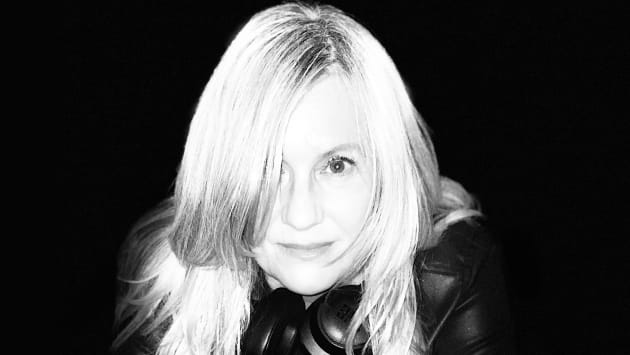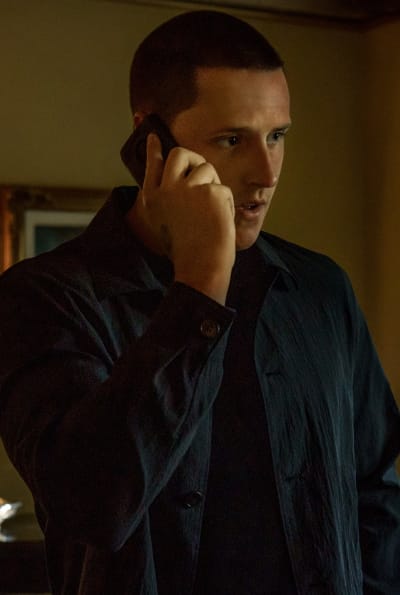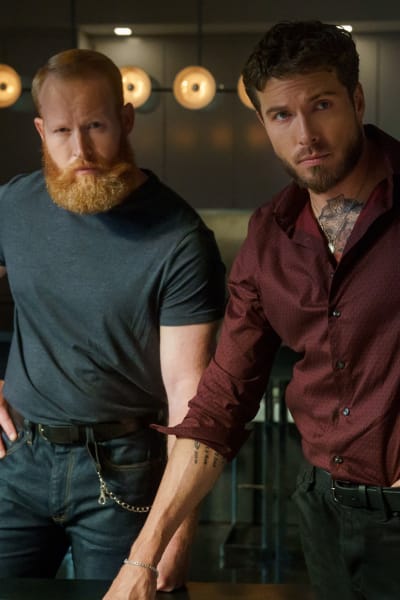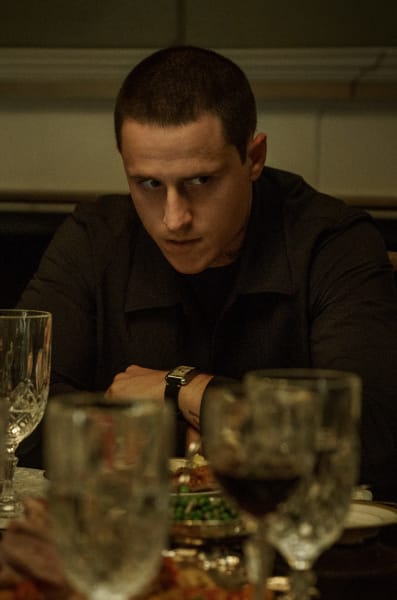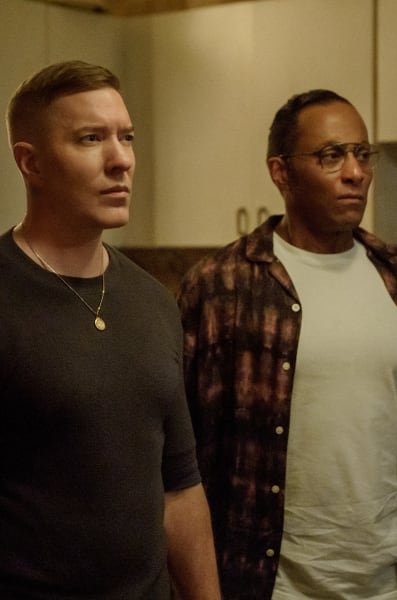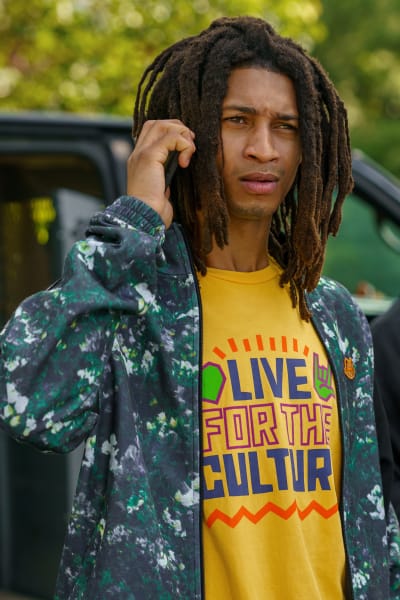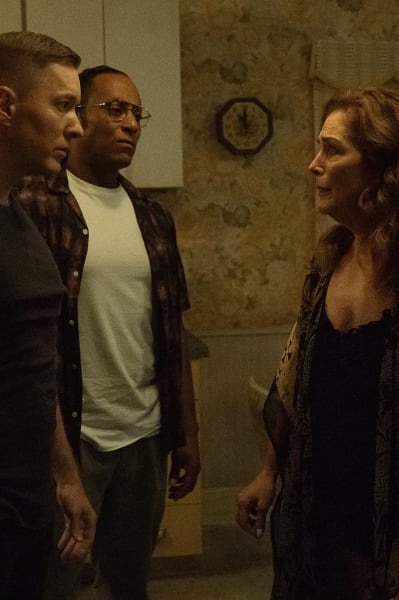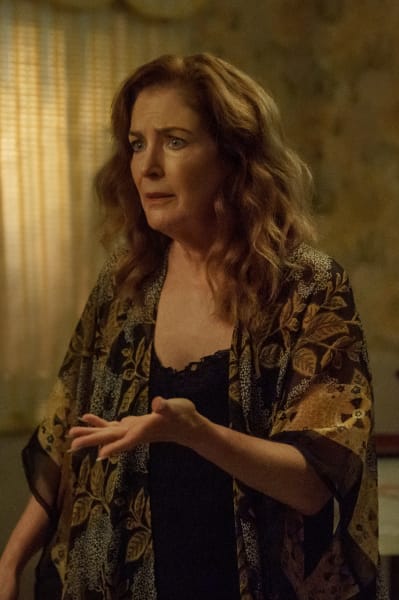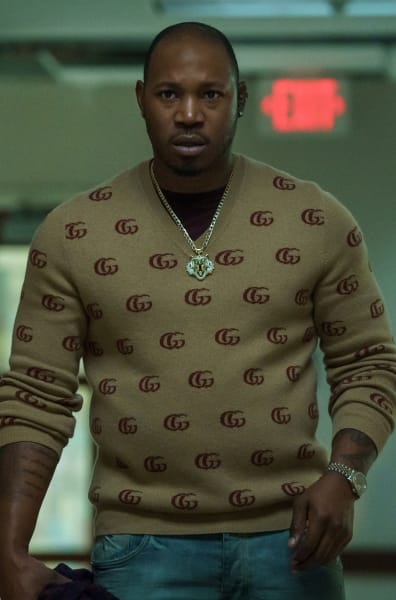Spoiler alert! Spoiler alert!
Some major things went down during Power Book IV: Force Season 2 Episode 5, and things in Chicago will never be the same.
With multiple deaths, loyalties were tested and ripped apart from the seams in this hour that leads us into the back half of this tremendous season.
This game-changing hour was directed by Lisa Demaine, who also serves as a Supervising Producer on Power Book IV: Force, and we were thrilled to talk with her about her preparation for this episode and working alongside this talented cast.
Lisa broke down so many key scenes and provided great insight into everything that goes into making such a huge episode come to life.
What kind of prep goes into an episode like this for you?
It’s a big episode. We had three pretty major deaths and moments of series regulars getting killed off the show. And so, really taking the time to think about how we do that and how each death is told in storytelling and who gets what kind of sendoff.
So, Walter’s death, just in terms of totally making sure that it’s big and epic, matching who Walter is to this world, that he goes out in that blaze of glory, so to speak.
Paul was the empathetic character. He’s sort of the moral compass of this family. And so I wanted Paulie’s death, when he falls into that water, that pool of water, and the blood sprays out, slow motion, hands spread out, to be almost Christ-like on the cross. He sacrificed himself for the world, for this family.
And then Doyle’s death was a shock, right? You did not see that coming. Claudia, in the split moment, makes a decision to pull her gun and shoot him in the head, and I wanted it to be fast and dirty and just to shock people. And so those three were kind of big to make sure those deaths were portrayed in those ways.
To take on something like Walter and Paulie’s death all being done in one big night, you storyboard it, meet with the stunt coordinators, meet with your cinematographer, and talk it all through in advance. And we actually rehearsed with all the stuntmen the day before for all the beats with Paulie, and the actor, Guy, was there as well.
He got to rehearse everything, even falling into the pool the day before, so that when I had Walter and Vic on the set the next night, I could really focus on what they needed to do and not get lost in the nuisances of talking about all the stunts because there’s so much to be done.
And it was a lot of work to make sure that we had that dialed in tight so I could focus on the actors.
Yeah, and that was actually my next question, and you answered it for me. I wanted you to walk me through that whole shootout scene. As you said, Walter Flynn‘s an OG, so it is important to make sure that you really get his death how you think it should be framed on screen. So, thank you so much for that explanation.
Yeah, it’s kind of fun. Just a fun fact: that last shot, when Vic turns to walk away, and we do the drone shot, and again, flying because you have so little time. And the sun is my clock, right? The sun’s going to come up on me. I’m outside.
And our drone operator, Joe, we had talked about what I wanted, and it usually takes a few takes to figure out the distance from the actor, when to pull away, what to see, and what have you. And he nailed it in one take.
Wow.
Yeah. I’m like, that was perfection. And so, I love that we got most of that shot in, too, and just at the very end, showing the span going up, up, up, up. And you see Walter’s world, and there they are, and all the deaths and Vic walking away.
What’s it like shooting with this cast, which has so many veteran actors, and having Joseph Sikora at the top of the call sheet? What’s that like for you as a director?
Oh, it’s an absolute dream. For directing, it’s about finding language and trust between the actor and yourself and finding an agreement as to what the scene is and what the intention is, right?
But working with actors like Joseph and Isaac and Kris and Lili and Shane, and Tommy Flanagan, has been a real joy because they’re all so skilled at their craft and so collaborative, so willing to try things and take notes and to play.
And that’s something I like to do. We’ll do a couple, it’ll be this, that, and then I like to go in, and I’ll say to them, “Let’s play. We’ve got that now. What if we try this? What if we try that?” And we start putting some color on it and giving the actor permission to say, “You can’t break it. You’ve got it. It’s in the can.
Now let’s play to see what else can come.” And you can only do that with actors, like what we have in our cast, super experienced, confident, willing to be directed, and willing to be like, yeah, let’s try things. That’s the fun.
Chicago is a big piece of Power Book IV: Force. So, for you, how important is it to be able to capture the city when you’re shooting the episodes?
That was a big conversation that Gary and I had in the beginning because I’m the supervising producer on the show as well, is that Season Two really needs to show the world that Tommy is living in and that we’re moving in, but also the world Tommy’s trying to dominate.
And it’s really important to pick locations that are not just Michigan Avenue, not just the glitzy downtown of Chicago, but let’s show Chicago, right? Let’s show the world. Let’s show Garfield Park. Let’s show the South Side, the West Side. Let’s show the Regal Theater.
And so picking locations that show the flavor of this city and that it’s different than New York. That was important to us, too. The original Power is set in New York, and in the series there, Tommy’s building a new coalition in a new world, in his old world.
And we wanted it to feel different from New York in terms of the costuming and how we shot it and lensed it and the color palette and all of that.
Was there a scene or something in particular in this episode that was challenging for you to shoot or figure out how you wanted to bring to life?
Definitely, Walter’s death was as big as it was. The challenge is you never have enough time. It’s so nice to work in this world of Power because it’s premium cable, so you have more days and more money, versus shooting a network TV, which you’re obviously much more limited, but ambition is big.
I always want more. So, that scene was challenging. And then the diner scene was challenging only because we had a lightning storm hit, and we had to shut down for two hours, and we couldn’t work. The crews all had to go in safely because there was lightning in the area.
And so literally sitting in the diner, not being able to shoot for two hours with the genny down, and still having to finish that scene was challenging.
And you have another episode coming towards the end of the season. So, without any spoilers, how do you think this episode, this midseason point, helps set up the rest of the season?
Yeah, this is such a big episode of the turns, the twists, the deaths that happened, the story. I think what’s setting up in episode five, which I love, is that no one is safe in this world, absolutely no one. And so if you know that leaving episode five, the audience knows that none of their characters really are safe, who knows?
It’s a drug-dealing world. It’s dirty, it’s deadly. People die. People get hurt. And given where Gary has taken Force for this episode, i.e., taking out Walter and Paulie, it’s open. You don’t know what’s going to happen. The audience should be sitting on the edge of their seat, worrying about who and what character is next.
The Power Universe is one of the biggest TV franchises. What does it mean to you to be a part of that?
Oh my God, I’m so thrilled to be a part of it. I’m so grateful to tell stories in this world and get to know Joseph. He is the connection back to the original Power world.
And I steeped myself in the lore of making sure I rewatched all of Power and Ghost and Raising Kanan to understand the world and to understand the lore of the stories and to honor it. I think the storyline with Kate and bringing her back into Tommy’s world here in Chicago is understanding the history between them and what that means.
And so, I’m thrilled to be playing in this world. I think creatively, we’re getting to do things that I don’t normally get to do in a network show. So, it’s been great. I’m absolutely thrilled to be here.
Just one last quick question for me. As opposed to the most challenging thing to shoot, what was something that you enjoyed shooting and are proud to see on the screen from this hour?
It’s both. It’s the Walter death scene, right? It was challenging, but I think it’s epic. I think it really came to flavor. There’s also a shot I love. It’s a little scene, but it’s the moment when Vic is sitting outside the bar waiting for Claudia, and she doesn’t show.
And we do this dolly shot, a really slow dolly shot around him coming around as he turns his head and has a realization that she stood him up and that she actually did try to kill him. It wasn’t a mistake that they showed up at 8:30.
Just those little moments of getting those kind of performances, and obviously the stuff with Jenard, with him in the car shooting up. I have so many favorite moments from this episode. It was a real creative bonanza for me to direct.
***This interview has been edited for length and clarity.***
Whitney Evans is a staff writer for TV Fanatic. Follow her on X.
